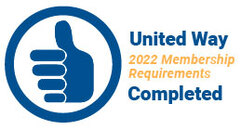|
July 30 has been declared World Day Against Trafficking in Persons by the United Nations. This is the last of a three-part series looking at Human Trafficking. In the past two articles we have looked at what human trafficking is and common myths and misconceptions related to trafficking. Today we will examine what can one individual do to prevent human trafficking.
Awareness is always the first step in prevention efforts. Being aware of who is vulnerable, traffickers’ recruiting methods, and ways to provide protective factors can be an effective method of prevention. Youth, in general, are particularly vulnerable, especially those experiencing family violence, recent relocation, homelessness, a need to be loved, poverty, and/or drug use. Traffickers prey on desperation, targeting those in need or those who lack strong support systems. They look for disadvantaged youth, and then provide shelter, food and clothing; through these necessities, traffickers develop a strong, trusting, “loving” relationship with the victim. Traffickers may introduce their victims to drugs to create an additional dependency on the trafficker. Once the victim believes the trafficker is the only one they can trust and rely on, the demands for labor or services begin, often with phrases like, “after all I have done for you, can’t you just help out this once…” Once the victim complies, their cooperation is used to shame and humiliate them into further service and prevent them from leaving. Online, traffickers use similar strategies to develop a relationship over time with the individual through a grooming process. Teenage girls are frequent targets. It may start out innocently enough. “You are so pretty.” “You should be a model.” “Send me a picture of yourself. I know someone who can help you get started.” “Meet me someplace so we can talk about it.” In four or five texts, the trafficker has maneuvered the individual into a dangerous situation, but youth may not recognize the red flags. Or perhaps the target feels uncomfortable with what they are being asked to do but may be hesitant to talk to anyone because they are afraid or embarrassed to admit what is happening. Teenage girls are often lured by older men who pretend, at first, to have fallen in love with them. As we have discussed before, the involvement of a supportive, nurturing adult in the life of a child or youth is a powerful prevention strategy against many of the perils facing our youth. When interviewed after escaping trafficking, many trafficked youth indicated that if there had been one supportive, trusted, nonjudgmental adult in their life, they believe they would not have been as vulnerable and could have avoided being trafficked. Becoming involved in a child’s life as a teacher, friend, or mentor is a powerful prevention strategy. Parents’ involvement is another crucial protective factor. Parents may notice subtle changes in their child that can be early warnings that something is amiss. Be aware of who your child is hanging out with. If their friend group changes, ask questions. Teach your child safe online behaviors. Be aware of their online activities. Reassure them that if something happens causing them to feel uncomfortable, they can talk to you and you will listen without judgement. Help them set up protective privacy settings on their devices and develop an exit plan if others make them uncomfortable or are sharing personal information about them. Teach them about safe, appropriate sharing practices for their pictures and personal information. Teach them to NEVER do anything that makes them feel uncomfortable online. For those who prefer anonymity, the CyberTipline: 800-843-5678 is a 24-hour hotline providing information on how to deal with online issues and connects with agencies who can intervene. Trafficking can happen here. Being aware of the problem and knowing how to protect our loved ones makes a difference. If you suspect someone is being trafficked or notice suspicious activity, call the Indiana Protection for Abused and Trafficked Humans hot line: 888-373-7888, the ICE tipline: 866-347-2423, or text HELP to BeFree (233733). For more information on human trafficking go to humantraffickinghotline.org
0 Comments
Your comment will be posted after it is approved.
Leave a Reply. |
AuthorLynn Saylor is the AmeriCorps member working with the United Against Opioid Abuse Initiative alongside the White County United Way. She is a major facilitator of the United Council on Opioids serving White County and a regular contributor to local media. Archives
October 2020
Categories
All
|

 RSS Feed
RSS Feed
